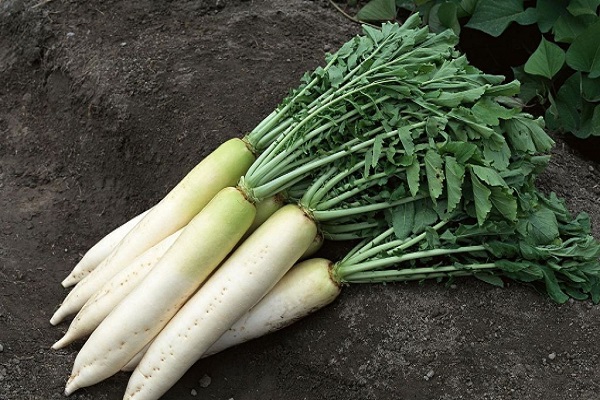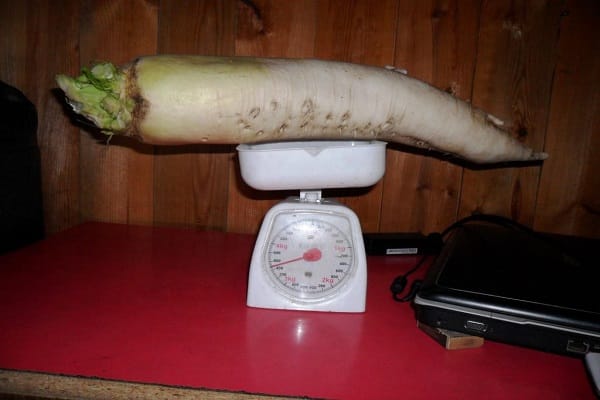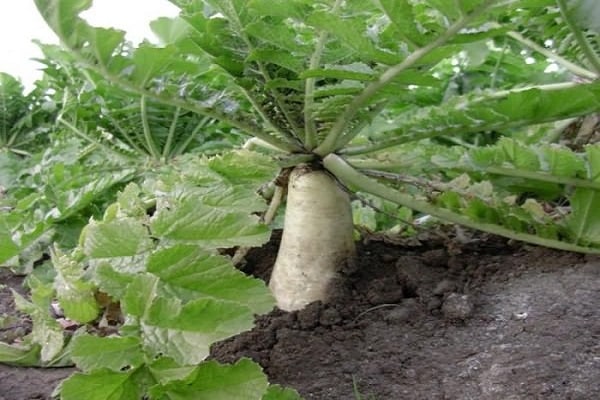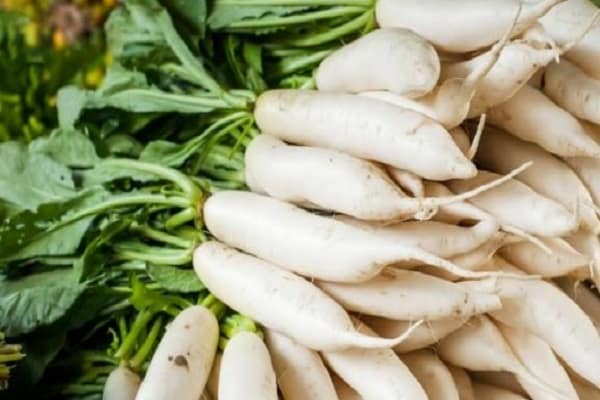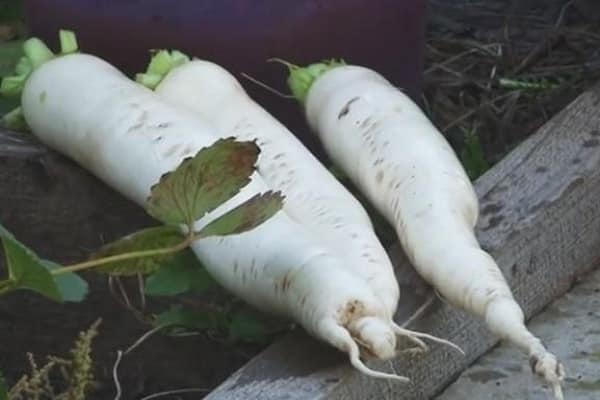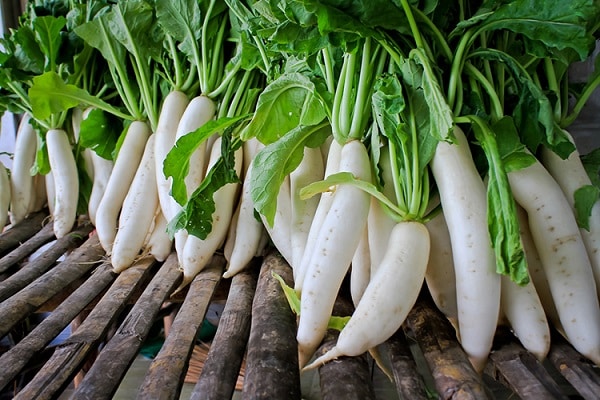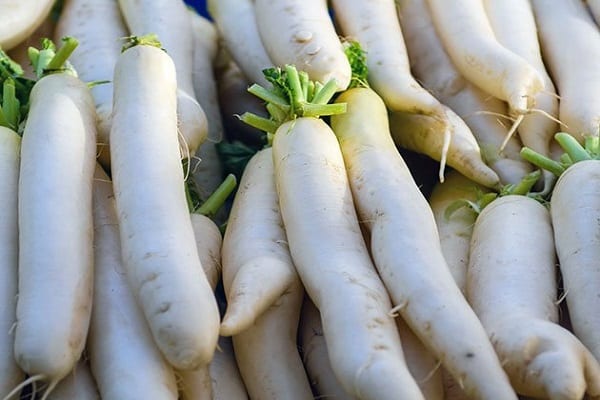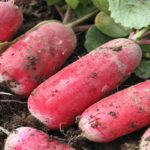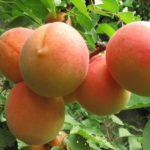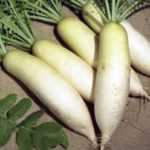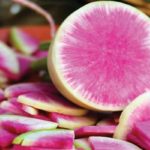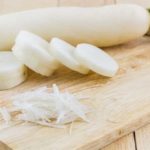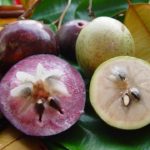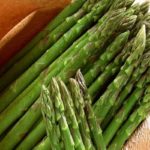Daikon is a vegetable that belongs to the cruciferous family and is considered a cross between a radish and a radish. This vegetable reaches enormous sizes. Daikon also tastes like the root vegetables mentioned above. It has excellent nutritional value and properties. This vegetable is quite easy to grow. There are many varieties of this vegetable, and daikon Caesar is considered one of the most common.
Description of the variety
When choosing from a large variety of varieties, it is worth remembering that Caesar daikon does not have the bitterness of radishes, and it does not have such a strong taste as radishes. It is crispy, has tasty pulp with a sweetish aftertaste. This vegetable contains a rare enzyme, with the help of which the body absorbs starch more easily, helps reduce the formation of toxins and quickly remove them from the body. Daikon contains the optimal amount of vitamins B and C, and due to the fact that it contains only fructose among sugars, it is consumed even by people who suffer from diabetes.
This variety of “Japanese radish” has a white root, has an oblong shape and reaches a length of up to 40 cm.
Growing
It is not recommended to sow daikon in a bed where cruciferous crops were grown. It is best to sow it in the soil where garlic grew.
This type of daikon can be sown twice - at the end of April or in the second ten days of July. Caesar is grown on a high bed, because at the time of ripening the root crop is quite deeply immersed in the ground.
This vegetable can be grown both in open and closed ground. Caesar is a mid-season variety. The sowing depth is selected depending on the time of planting and soil type, the average depth is from 1.5 to 3 centimeters. The period from the first shoots to harvest is from 45 to 60 days. With proper care, the yield reaches from 3.5 to 5 kg per square meter.
Features of care
Good results can be achieved when sowing on fertile loamy and sandy loam soils, with a slightly acidic or neutral reaction. Immediately after sowing, it makes sense to cover the bed with a small layer of mulch. It can be:
- sawdust;
- grass cut with a trimmer or lawn mower;
- compost.
If mulching is carried out immediately, then this will save moisture and help the seeds to germinate faster. When a leaf forms on the plant, thin out the seedlings. At the same time, loosen the soil and add mulch. Under no circumstances should you allow the soil to dry out, become compacted, or the seedlings become too dense, as this may cause the plant to sprout. As a result, the root crops become flabby or a void forms inside.
It is important to carry out regular watering at first, since if there is a lack of water, the root crops will slowly gain weight.
Advantages and disadvantages
The description of the advantages must begin with the main positive quality - the plant does not accumulate harmful substances, even if they are in excess in the soil. This is a rare quality that few vegetables can boast of.
The disadvantages include a short shelf life.
Pests and diseases
The most widespread disease is mucous bacteriosis. Caesar has relative resistance to this disease. In addition, the plant is attacked by the garden cutworm and cruciferous fleas. If you mulch the soil, then the daikon is least affected by insects harmful to it. The most effective means of prevention against the garden cutworm is considered to be watering the soil with a weak solution of manganese.
Harvest and storage
Harvesting of daikon Caesar usually begins at the end of September and ends before the onset of severe cold weather. Root crops are harvested as they ripen. It is better to collect during the dry season. But if the bad weather drags on, they do this even in bad weather. Just before storing, the vegetables need to be thoroughly dried.
You need to store daikon in the same way as regular black radish.The room should have low humidity and air temperature from +1 to +5 °C. A small amount of root vegetables can be easily stored in a box on the balcony or on the bottom shelf of the refrigerator.

